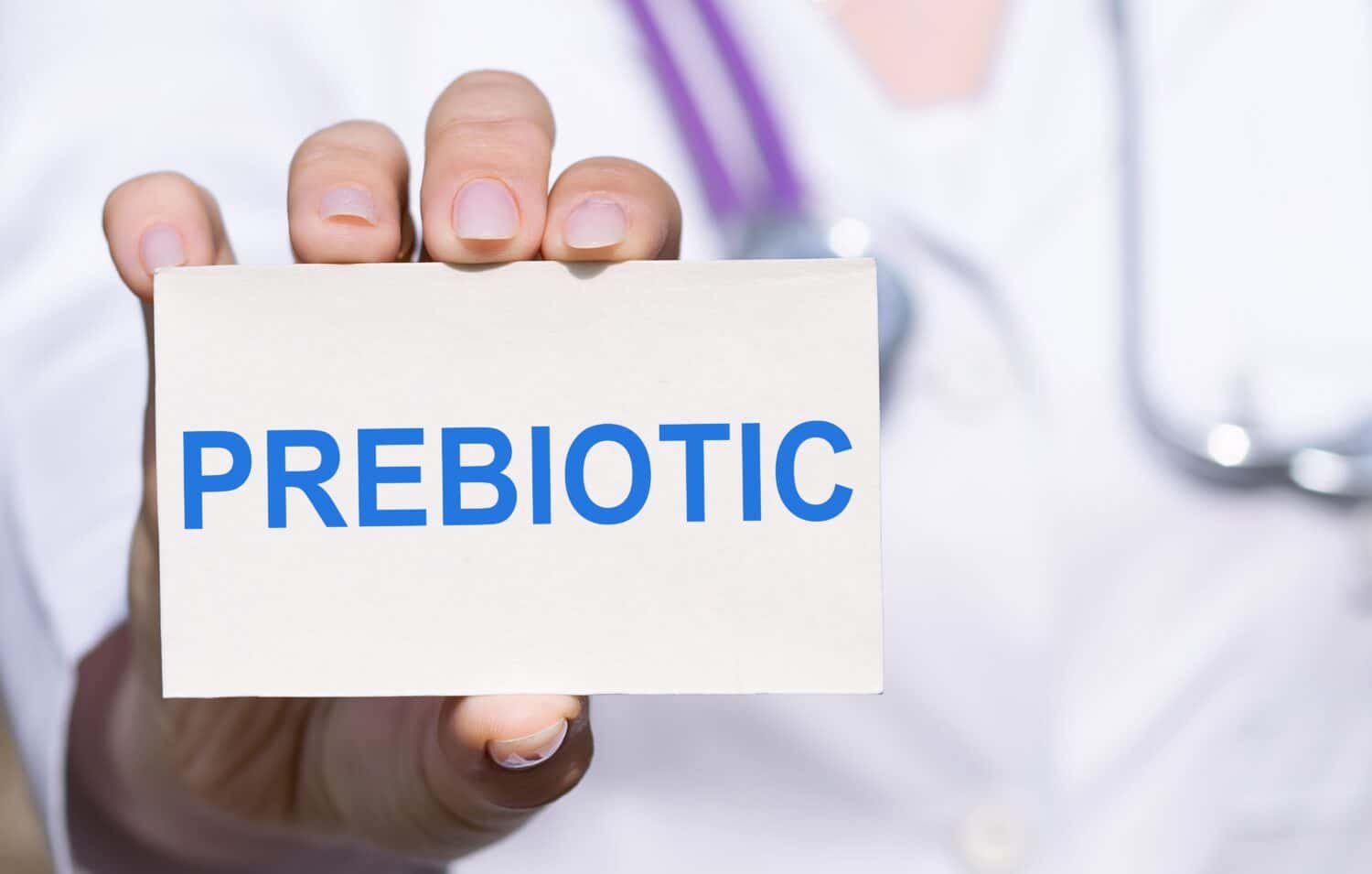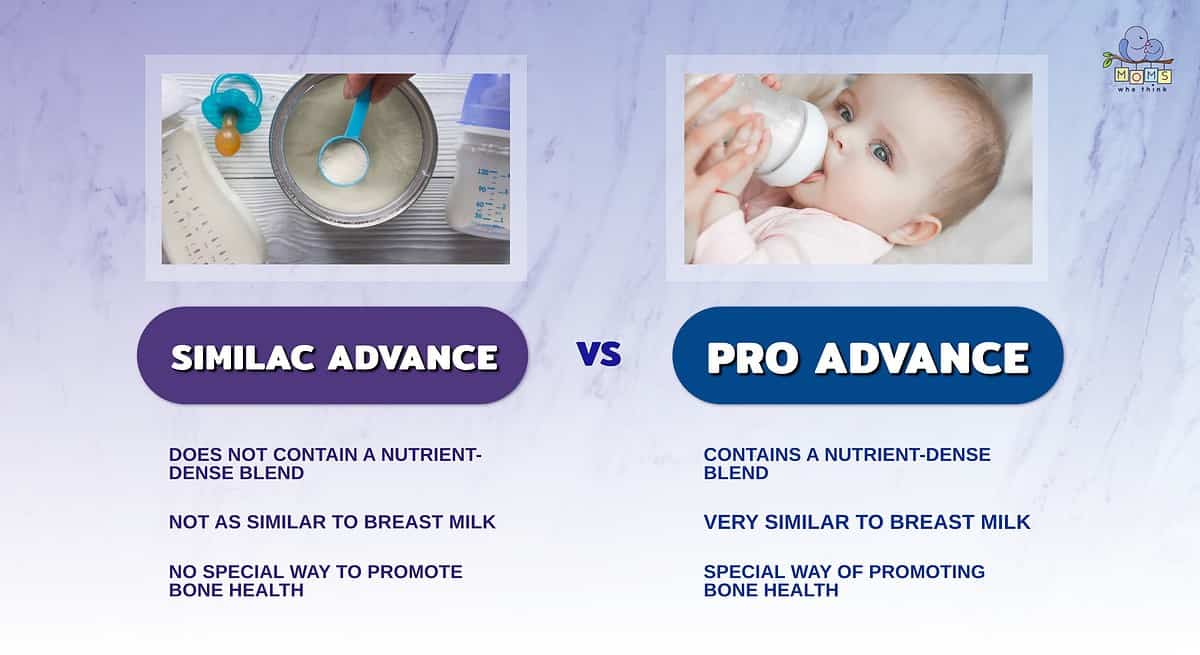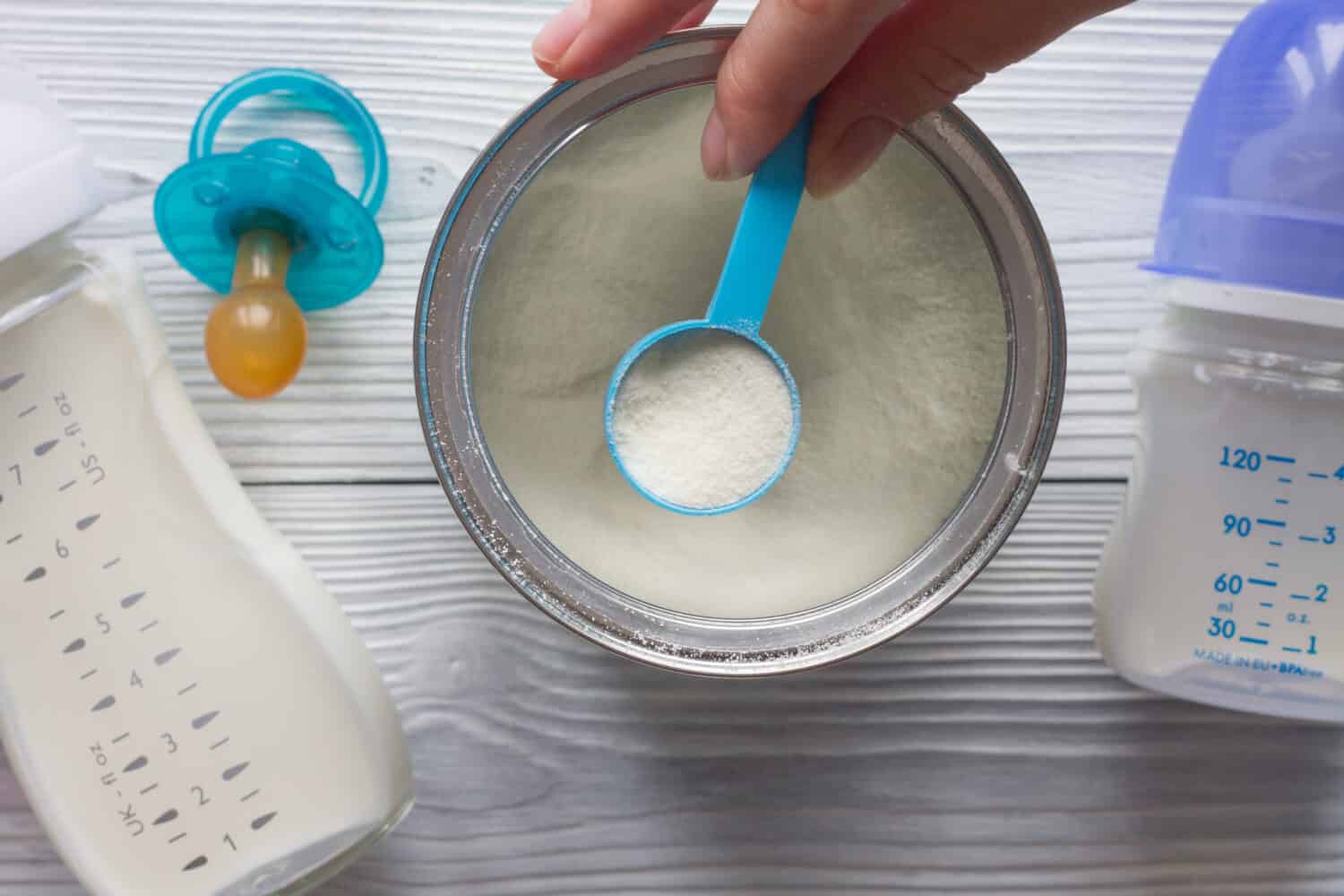What are the key differences between Similac Advance vs. Pro Advance formulas? Is it as simple as a few ingredients? Does one support nutritional concerns better than the other? What about boosting the immune system… brain development… or overall health of a baby?
Since Similac is the #1 infant formula brand hospitals prefer across America, it’s important to know the differences between the two. That way, you can make the best decision for your little one! So, let’s dive in. First, let’s explore…
How Are They Similar?
BOTH Similac Advance* and Pro-Advance act as a supplement or alternative to breastfeeding.

Infant formula can be a healthy substitute for breast milk!
©Prostock-studio/Shutterstock.com
What are the Ingredients?
Let’s break down what each of the ingredients mean for both Similac Advance and Pro-Advance
BOTH contain:
Key vitamins and minerals that support a baby’s growth and development:
- Vitamin D – Helps build strong bones and a healthy immune system
- Vitamin E – Promotes cell growth
- Vitamin A – Supports vision, growth and the immune system
- Calcium – For bone development
- Iron – Promotes healthy blood and helps carry oxygen throughout the body
- Phosphorus – Supports skeletal development
- Zinc – Helps with healthy tissue growth and repair, wound healing and a strong immune system
Nonfat Milk: This is milk with the fat removed. It's a source of protein and other nutrients.
Lactose: This is a natural sugar found in milk. It provides energy and helps with the taste of the product.
High Oleic Safflower Oil: A type of oil derived from safflower seeds. It's used for fat content and as a source of calories.
Whey Protein Concentrate: A protein derived from whey, a component of milk. It's a source of essential amino acids.
Soy Oil: Oil extracted from soybeans. Provides fats and calories.
Coconut Oil: Oil derived from coconuts. Adds fats to the product.
M. Alpina Oil: Another oil source that likely provides omega-3 fatty acids.
Beta-Carotene and Lutein: These are natural pigments found in fruits and vegetables that are important for eye health.
Nucleotides: These are the building blocks of DNA and RNA. They help support a baby’s developing immune system
Also noteworthy is that neither of the two have artificial growth hormones.
Now here’s where Similac Pro-Advance stands out…
The Closet Formula To Breast Milk
While both Similac Advance and Pro-Advance are inspired by breast milk – here’s why they differ: Similac Pro-Advance contains an exclusive nutrient-dense blend that is also found in breast milk. Some moms call it the next best thing to breast milk. You may even say it’s a triple threat when compared to Similac Advance. Why?
Well, let’s explore and see what the specially blended formula found in Similac Pro-Advance contains. Here are…

The right formula can boost a baby's brain and bone development!
©Oksana Kuzmina/Shutterstock.com
3 things that'll make you go WOW:
Lutein – This is an antioxidant belonging to a group of compounds called carotenoids. Because the body cannot produce lutein on its own, babies get it naturally through the umbilical cord, breast milk, and diet.
What does lutein do for a baby’s health?
It plays a huge role in supporting eye health, particularly the health of the retina. The retina is the part of the eye responsible for capturing light and sending visual signals to the brain. And according to the National Institute of Health – it's not only good our eyes it’s good for the brain too! Why? Because it protects the eyes from certain kinds of light and helps keep both the brain and eyes strong and healthy.
DHA – Docosahexaenoic Acid or DHA, is a type of Omega-3 fatty acid. Your body cannot produce DHA on its own.
What does DHA do for a baby’s health?
A lot! Since the first year of a newborn’s life is a crucial period of brain growth and development – DHA act as a building block for a baby’s brain cells and vision development. It’s what helps give babies the proper nutrients they need to grow into healthy children!
But DHA has been around for less than 30 years for infant formula. In fact, The New York Times published an article about DHA and noted “Studies from the 1990s found that formula-fed infants had lower levels of brain DHA than breast-fed infants and suggested that adding DHA to formula improved cognitive and vision development.”
Vitamin E – This nutrient is like a protector because it helps keep our cells safe from damage.
What does vitamin E do for a baby’s health?
Vitamin E is a great immune booster and helps fight off nasty germs. It also helps promote healthy skin and eyes.
Remember – lutein, DHA and vitamin E are all naturally found in a mother’s breast milk. But with these 3 powerhouses working together – you’ve got the next BEST THING: Similac Pro-Advance’s exclusive formula containing OptiGRO®!
But there’s more!
Similac Pro-Advance’s exclusive formula uses a special way of promoting strong bone health. This calcium-rich ingredient is a no palm olein oil blend that doesn’t affect a baby’s digestion.
What Are Prebiotics?
Now you may be familiar with probiotics which promote gut health. Similac Pro-Advance contains prebiotics. Let’s see why your baby needs them.

Prebiotics are good for healthy tummies!
©Fox_Ana/Shutterstock.com
Prebiotics for babies are special types of dietary fibers – naturally found in breast milk – that help support the growth and activity of beneficial bacteria in the gut. Now babies don’t break down the fibers directly. Instead, they serve as food for the good bacteria in the baby's digestive system.
Why prebiotics are important for babies
Here are FIVE powerful reasons why your baby needs prebiotics:
- Happy Tummy: Prebiotics are like little helpers for your baby’s gut or tummy. They make a cozy place for good bacteria to grow, which helps keep their tummy balanced and healthy. This promotes better and easier digestion.
- Boosts Immune System: Prebiotics also give a boost to your baby's immune system and helps fight off nasty germs. This helps the good bacteria grow and keep your baby healthy.
- Better digestion: Prebiotics are like magic for making poops more comfy. They help your baby's tummy work just right, so there's less chance of tummy troubles like constipation.
- Improves nutrient absorption: Some beneficial bacteria in your baby's tummy are amazing at breaking down certain nutrients your baby can’t do on its own. Prebiotics help the beneficial or good bacteria grow, so your baby can absorb the nutrients they need.
- Cognitive development: Guess what? A happy tummy might even help your baby's brain grow strong and healthy. Scientific studies suggest a direct connection between a healthy tummy supported by prebiotics and brain development and function.
See how prebiotics are like little buddies that can help your baby's tummy and brain stay healthy and strong!
*Important note: Similac Advance is not for infants or children with Galactosemia. This is a rare hereditary disorder. When babies are born with galactosemia, their bodies have a hard time changing galactose, a sugar found in milk, to glucose, which is another kind of sugar the body needs. Galactose is found in human mother’s milk as well as dairy products. Initial signs for infants usually are refusal to feed, vomiting, lethargy, jaundice, cataracts, and infection. Usually, babies are put on a lactose-free diet shortly after birth.
Final Thoughts

- Similac Pro Advance contains a nutrient-dense blend. This blend is what sets it apart from a lot of other formulas on the market.
- The inclusion of a nutrient-dense blend in Pro Advance makes it very similar to breast milk.
- Another great benefit Pro Advance has is its special way of promoting a baby's bone health.
Whether you choose to breastfeed or use an infant formula or do both, you now can make an informed choice. Especially since there are lots of infant formulas on the market. Now you have the tools you need to decide on what’s best for your baby Similac Advance vs. Pro-Advance. Both offer a nutrient-dense formula.
However, Pro-Advance is the closest to mimicking breast milk. The exclusive OptiGRO® blends key ingredients found in breast milk to promote boost brain development, vision, and cell growth. These are powerful nutrients needed especially during your baby’s first year. So what will you choose for your baby?
The image featured at the top of this post is ©279photo Studio/Shutterstock.com

